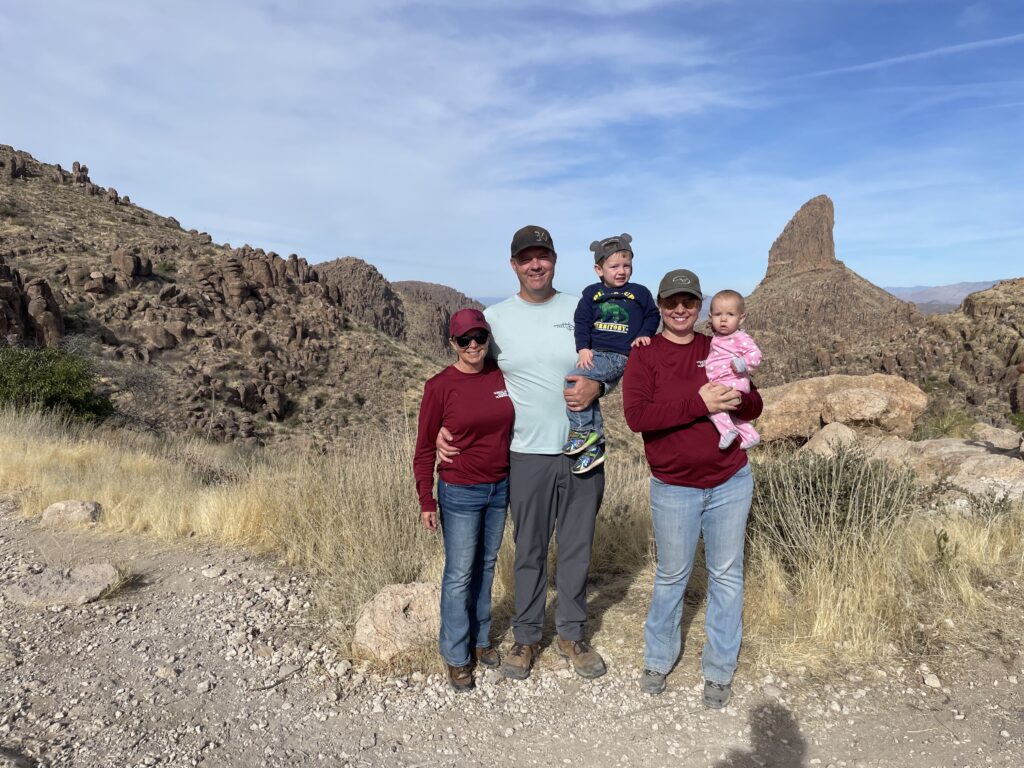 As I recently went on a hike to enjoy our perfect Arizona winter weather and our breathtaking landscapes, I was reminded that all too soon we will start to warm up again. Many of our Arizona residents will flee the brutal heat and head to cooler weather. Although I am slightly envious of the ability to be a snowbird or a part time resident of Arizona, I am mindful of the estate plan of those individuals lucky enough to be part time residents of two or more states. There are certain things I always share with people that fall into the category of a part-time resident or “snowbird,” and that is the topic of our blog today.
As I recently went on a hike to enjoy our perfect Arizona winter weather and our breathtaking landscapes, I was reminded that all too soon we will start to warm up again. Many of our Arizona residents will flee the brutal heat and head to cooler weather. Although I am slightly envious of the ability to be a snowbird or a part time resident of Arizona, I am mindful of the estate plan of those individuals lucky enough to be part time residents of two or more states. There are certain things I always share with people that fall into the category of a part-time resident or “snowbird,” and that is the topic of our blog today.
Determining Residency And How It Impacts Your Estate Plan
 Estate planning is the process of arranging for the management and distribution of your assets after your passing. It involves making critical decisions about who will inherit your property, how your debts will be settled, and who will make medical and financial decisions on your behalf if you become incapacitated. For part-time residents, having a comprehensive estate plan is crucial, as it can mitigate potential legal complexities arising from multiple state regulations.
Estate planning is the process of arranging for the management and distribution of your assets after your passing. It involves making critical decisions about who will inherit your property, how your debts will be settled, and who will make medical and financial decisions on your behalf if you become incapacitated. For part-time residents, having a comprehensive estate plan is crucial, as it can mitigate potential legal complexities arising from multiple state regulations.
Residency is a vital distinction when creating your estate plan. Understanding your residency status can affect tax implications, voting, eligibility for benefits, and the validity of your estate planning documents. Residency means a place where a person currently lives, even if it is not their permanent home. A person can have multiple residences but only one domicile.
Domicile means a person’s true, fixed and permanent home and place of habitation. It is the place where he intends to remain and to which he expects to return when he leaves without intending to establish a new domicile elsewhere. A person that moves to Arizona for a temporary job is a resident but may still be domiciled in their previous state if they intend to return there permanently
It is important to understand residency and domicile when creating an estate plan when you have residency in more than one state. Part-time Arizona residents must consider all legal aspects of their residency to determine the best path forward in creating an estate plan.
Arizona Does Not Have Estate Tax or Inheritance Tax, How This Effects You
 Arizona has its own tax laws and understanding how your estate may be taxed can influence your planning. There are two types of taxes that can affect your estate plan. There is an estate tax and an inheritance tax. Part-time residents should be aware of potential tax consequences. Estate tax is a tax imposed on the total value of a deceased person’s assets at the time of their death. This includes cash, real estate, stocks, bonds, business interests, and other personal property. This tax applies to the estate prior to distribution to the beneficiaries. Inheritance tax, on the other hand, applies to the beneficiaries based on the value of the assets they inherit.
Arizona has its own tax laws and understanding how your estate may be taxed can influence your planning. There are two types of taxes that can affect your estate plan. There is an estate tax and an inheritance tax. Part-time residents should be aware of potential tax consequences. Estate tax is a tax imposed on the total value of a deceased person’s assets at the time of their death. This includes cash, real estate, stocks, bonds, business interests, and other personal property. This tax applies to the estate prior to distribution to the beneficiaries. Inheritance tax, on the other hand, applies to the beneficiaries based on the value of the assets they inherit.
Most states, including Arizona, do not levy estate taxes. This means that when a person dies, their estate will not be subject to taxation at the state level. There are some states that do impose a state tax on the estate. However, Federal estate taxes may apply if the estate exceeds the federal exemption limit.
Arizona does not levy an inheritance tax either, which means your beneficiaries will not have to pay taxes on the assets they inherit from a deceased person. It is important to note that while there are no estate taxes or inheritance taxes in Arizona, property taxes may still apply to real estate owned by the deceased and these taxes will need to be addressed as part of the estate settlement process. You should consult a tax professional to navigate any complexities that may arise from your Arizona residency.
If You Own Property In Multiple States You Will Want To Avoid Dual Probate Problems

As an Arizona resident, you may have property in more than one state. This may require probate in Arizona and other states. A domiciliary probate is required in the state where you are domiciled at the time of your death. This is your primary residence. The court in the domiciled state oversees the administration of the estate, including assets located within that state.
A secondary or ancillary probate is needed in any other states where property is located. Each state has jurisdiction over real property within its state boundaries requiring a separate probate process to transfer ownership of those assets. In order to avoid having multiple probates in two or more states, you must be careful in your estate planning. A trust may be beneficial to avoid probate or you may need beneficiary designations to avoid multiple probates.
I have helped many part time residents open a domiciliary probate here in Arizona while they also opened an ancillary probate in another state. I also have a client that I am helping with an ancillary probate here in Arizona after they opened a domiciliary probate in another state. Instead of dealing with these probate issues, it is best to plan to avoid multiple probates with an experienced estate planning attorney.
Essential Estate Planning Documents To Consider as a Part-Time Resident
A will is a fundamental component of estate planning, but for those with significant assets, complex family situations, or assets in more than one state, a trust might be a better option. Trusts can help avoid probate, provide privacy, and ensure a smoother transition of assets. Consider setting up an Arizona-specific trust if you own property or significant assets in the state. A trust can be created under Arizona laws and Arizona will control the creation and validity of the Trust. Jurisdiction over the administration of the trust may be a different state, depending on your specific situation.
It’s crucial to have healthcare directives in place, such as a living will and a durable power of attorney for healthcare. These documents outline your preferences for medical treatment and appoint someone to make healthcare decisions on your behalf if you cannot do so. If you are a resident of more than one state, you may need healthcare directives in both states to be sure you have accurate and valid documents from each state.
Part Time Residents Should Not Procrastinate
As part-time Arizona residents, it’s essential to take proactive steps in your estate planning efforts. Whether you are a snowbird enjoying the winter months or a seasonal visitor, understanding how to manage your estate can help ensure your wishes are met and your loved ones are protected. By understanding the unique aspects of Arizona’s laws and incorporating them into your estate plan, you can ensure that your wishes are honored, and your loved ones are taken care of. Consulting with an estate planning attorney who understands the nuances of both your home state and Arizona can provide valuable guidance tailored to your individual needs. Don’t wait until it’s too late; start planning today to secure your legacy for tomorrow.


